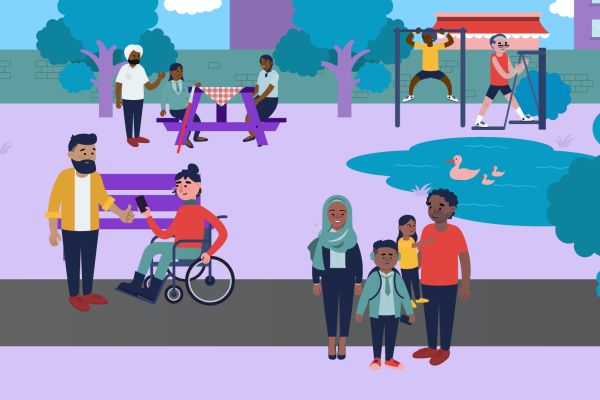My work at BACP involves supporting two research consortia - the Student Counselling Outcomes Research and Evaluation (SCORE) consortium, and the Training and Research Counselling Clinics consortium (TRaCCs).
While my input into both groups is quite different, both involve working with colleagues across many different institutions, bringing together practitioners and researchers. Each contribute important research in understanding mental wellbeing and distress.
My prior work experience involved working at a university in roles involving pastoral support, so I was extremely happy to be given the opportunity to work with SCORE. The SCORE consortium conduct research in university and college counselling. Its members include both practitioners and researchers from several UK Higher Education Institutions (HEIs).
University and college counselling services offer specialised services for students, being in touch with the student lifecycle from enrolment to graduation. SCORE aims to produce research evidence that counselling services are worth the investment by their parent institutions.
My work with SCORE currently involves using data to understand how the problems for which students approach counselling services affect various academic outcomes, such as thoughts of leaving university, or their ability to study. Using the Counselling Impact on Academic Outcomes (CIAO), we also ask students to evaluate the impact the counselling they have received has had on the same academic outcomes.
With this data we can evidence that not only does counselling reduce psychological distress, but we can also show reductions in the impact of problems on academic outcomes. This research is valuable for services wishing to demonstrate the contribution they make to institutional assessments of teaching excellence, and to help improve access to, and progression through, higher education.
Another project being undertaken by the SCORE group is around developing a ‘minimum dataset’ for university counselling services to collect. This is to ensure consistency and to increase opportunities for pooling large datasets from across several different services. You can read more about the consortium's work on the SCORE website.
My role with TRaCCs is a little more behind the scenes, but no less important. My time is spent more administratively, facilitating meetings for several training and research clinics across the UK, with advisory input from practitioners and researchers across the British Isles. The research of these clinics helps develop knowledge of counselling in specialist areas such as domestic violence, clients experience of online counselling, and the experiences of clients with learning disabilities.
I have a particular interest in the training experiences of therapists, and so for me the TRaCCs consortium is also important because it enables trainees to get involved in more research, collaborating with experienced researchers and practitioners beyond the boundaries of their campuses and locales. I’m interested in finding out more about what trainees think of being involved in research, both in collecting routine clinical data and exploring their own research ideas.
Read more...

Mental Health Research Matters
We believe that counselling changes lives and that's why we’re supporting the national #MentalHealthResearchMatters campaign. Check out our blogs, articles and other resources.

Promoting research
Research is important for clients, for practitioners and politically to continue to demonstrate that counselling changes lives.

Blogs and vlogs 2022
News and views from members, staff and clients
